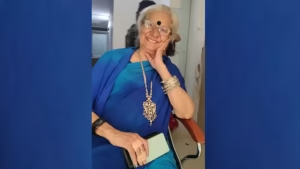Sirimavo Bandaranaike: The Iron Lady of Sri Lanka’s Political Landscape

Image credit: Wikipedia
In 1960, a seismic shift occurred in global politics when Sirimavo Bandaranaike became the world’s first female prime minister. This groundbreaking achievement not only reshaped Sri Lanka’s future but also redefined women’s roles in leadership worldwide. Born in 1916 to an elite Sinhalese family, Bandaranaike’s path to power was unexpected and transformative.
Bandaranaike’s political journey began in tragedy. Following the assassination of her husband, S.W.R.D. Bandaranaike, the 4th Prime Minister of Ceylon (now Sri Lanka), in 1959, she emerged from grief as a formidable political force. Her ascent to power in 1960 marked a watershed moment, challenging traditional gender roles and inspiring women across the globe.
During her tenure, Bandaranaike pursued a bold agenda that would shape Sri Lanka’s future. She championed socialist policies, nationalizing key industries and pushing for land reforms. Internationally, she steered the country towards non-alignment, skillfully fostering relationships with both Western and Eastern bloc countries. This delicate balancing act elevated Sri Lanka’s global standing, culminating in her hosting the fifth summit of the Non-Aligned Movement in Colombo in 1976.
However, Bandaranaike’s leadership was not without controversy. Her government’s emphasis on promoting the Sinhalese language and Buddhism sowed seeds of ethnic tension that would later escalate, illustrating the complex interplay between national identity and social harmony in a diverse nation.
Bandaranaike’s political career spanned three terms as prime minister, each marked by triumphs and setbacks. She faced numerous challenges, from economic crises to insurgencies, demonstrating remarkable resilience. Her famous quote, “The only way to overcome fear is to face it squarely,” encapsulated her approach to both personal and national adversities.
Among her most significant achievements was her role in transforming Sri Lanka into a republic in 1972, severing constitutional ties with the British Crown. This move marked a decisive break from the colonial past and asserted Sri Lanka’s sovereignty on the world stage.
Beyond her public persona, Bandaranaike’s personal choices offered insight into her character. Her lifelong vegetarianism, uncommon among Sri Lankan politicians of her time, reflected her deep commitment to Buddhist principles, which often influenced her political decisions.
Bandaranaike’s impact extended beyond her own achievements, as she established a political dynasty. Her daughter, Chandrika Kumaratunga, later became president, creating a familial political lineage that has been both admired and criticized in Sri Lankan politics.
The legacy of Sirimavo Bandaranaike in Sri Lanka and global politics is profound and enduring. She shattered the glass ceiling, proving that gender was no barrier to political power. Her tenure shaped modern Sri Lanka in fundamental ways, and her influence continues to reverberate through the nation’s political landscape.
Ultimately, Sirimavo Bandaranaike’s life story stands as a testament to the power of determination and the profound impact one individual can have on the course of history. Her journey from a traditional aristocratic background to the pinnacle of political power remains an inspiring narrative of breaking barriers and redefining possibilities, not just for Sri Lanka, but for aspiring leaders around the world.
Bidisha Ghosh, Staff Reporter








